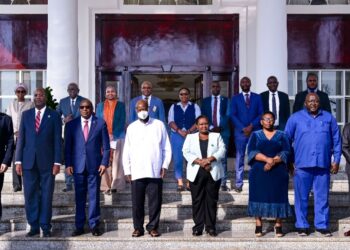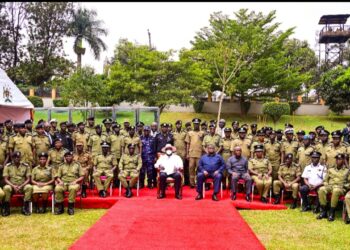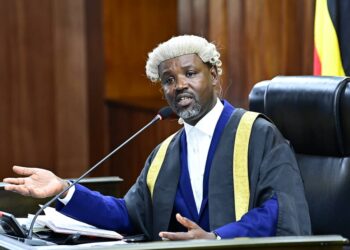The United Nations Capital Development Fund (UNCDF) under the Development Initiative for Northern Uganda (DINU) program together with the Ministry of Local government have launched Integrated Revenue Automation System (IRAS) to increase revenue collection at local government levels.
In Uganda, financing of local governments has remained a big challenge in the decentralization process because districts have relied heavily on conditional central government transfers for most of their financing needs.
Local revenue as an alternative financing has most probably not yielded better results for districts with an average of local revenue funds contribution estimated at less than 3 percent of the district budgets and less than 7 percent for town councils and municipalities.
The shortfalls of local government financing due to low local revenue have resulted in poor service delivery to the populace in the local governments which in turn has stimulated poverty persistence.
Local revenue collection at the local level has always been difficult since parish chiefs have always fallen victim to not reporting some taxes collected and to avoid such errors, UNCDF using DINU program has teamed up the Local Government Finance Commission (LGFC) of the Ministry of Local Government to support the improvement of local revenue management and administration in the 18 DINU local governments through the Local Revenue Enhancement Grant (LREG).
While speaking at the project launch at UNCDF Headquarters in Kampala on Tuesday, the organisation Regional Programme Advisor, Dmitry Pozhidaev appreciated the innovation and said that without fiscal space and capacity to raise some good revenues at the local government, people can not get adequate financial muscle especially in such times of Covid-19.
“We need to organize a financial structure that will enable the local government utilize revenues at full capacity.This will allow local governments to deliver services to the people,” Mr Pozhidaev noted.
“This is the beginning of helping the local government to increase their capacity to collect local revenues. IRAS is the part of the puzzle to solve this problem on less collections of local revenues so that they can tap into finances to support infrastructural development,” he added.
According to Caroline Adriaense,the Counselor Head of Cooperation UNCDF, the project will strengthen the capacities of local governments in public financial management and public financial services.
“It will improve service delivery and local development and also strengthen capacities of mandated local government units to efficiently mobilize and equitably allocate,utilize local revenue and resources through supporting automation of local revenue administration,” Ms Adriaense said.
On his part, the minister of Local government Raphael Magyezi said, “The system is expected to increase revenues thus increasing funding for social economic development of local governments.”
He also noted that IRAS will reduce dependency of local government on the central government.
The IRAS launched shall be tested beginning with five of the core local governments of Amolatar, Kole, Omoro, Yumbe and Zombo thereafter the IRAS shall be installed and operationalized in the remaining 13 districts.
UNCDF donated over 90 computer desktops, 90 UPS, 36 printers and 90 external drives to 18 districts where a pilot study is going to be conducted ,all costing 165000 US dollars (Shs597,900,680).
About DINU:
DINU is a UNCDF program designed as a multi-sectoral integrated programme covering interventions in three specific interlinked sectors: (1) Food Security, Nutrition and Livelihoods; (2) Infrastructure (Transport, Logistics, Water, Energy) and (3) Good Governance.
The programme covers 40 districts within five sub-regions of Acholi, Lango, Karamoja, Teso and West Nile. The programme is to run from 2017-2022, with aims to steer a paradigm shift from a sector-oriented support to an integrated territorial approach, and ‘connect the dots’ between key sectors and areas for an inclusive and sustainable socio-economic development of the Northern Uganda.
The general objective of the DINU programme is to consolidate stability in Northern Uganda, eradicate poverty and under-nutrition, and strengthen the foundations for sustainable and inclusive socio-economic development.
Do you have a story in your community or an opinion to share with us: Email us at editorial@watchdoguganda.com











